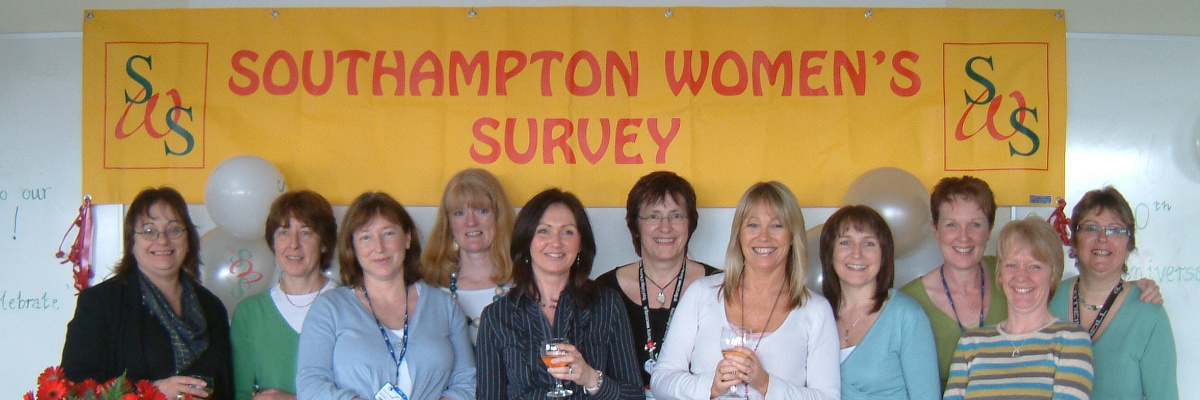
Staff
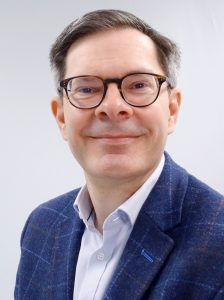
Professor Nicholas Harvey
Director; Professor of Rheumatology and Clinical Epidemiology
Nicholas Harvey, MA MB BChir PhD FRCP FAOP FASBMR, trained in medicine at the Universities of Oxford and Cambridge. He is Professor of Rheumatology and Clinical Epidemiology at the University of Southampton and Director of the University’s MRC Lifecourse Epidemiology Centre, where he leads a programmatic structure investigating the lifecourse epidemiology, determinants and underlying mechanisms of common chronic noncommunicable musculoskeletal disorders of ageing, principally osteoporosis, sarcopenia and osteoarthritis, to inform novel preventive and therapeutic interventions. He is Chair of the International Osteoporosis Foundation Committee of Scientific Advisors; a Board Member of the European Society for Clinical and Economic Aspects of Osteoporosis, Osteoarthritis and Musculoskeletal Diseases; a former Trustee of the UK Royal Osteoporosis Society (ROS) and was inaugural Vice-Chair of the ROS Osteoporosis and Bone Research Academy. He is a Fellow of the Association of Physicians of Great Britain and Northern Ireland and of the American Society for Bone and Mineral Research (ASBMR). He has won many national/international prizes, most recently the International Osteoporosis Foundation Olof Johnell Science Award. He has published over 400 articles, has accrued more than £50 million in grant funding and is a member of many national and international committees, including as Musculoskeletal Lead for the UK Biobank Imaging Study, as a member of the UK National Osteoporosis Guideline Group Advisory Committee, as a past member of the ASBMR Professional Practice Committee, and as clinical co-chair of the 2021 ASBMR Annual Meeting.
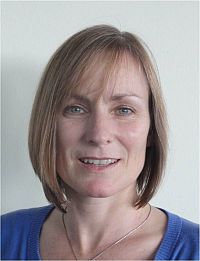
Professor Janis Baird
Professor of Public Health & Epidemiology
I first became involved in the SWS in 2002 when I did some work to look at how the diet of an infant was related to their growth. I also carried out cleaning and checking of the data collected in SWS children and so became familiar with the study and the data collected over the years. Since then I have worked with the SWS team to examine the predictors of childhood sleep patterns and their relationship with behaviour at three years of age.
I have gradually become more involved with SWS over the years and am now leading our plans for the next phase of follow-up – examining the health and wellbeing of the SWS children who are now young adults aged 17 to 19 years.
I trained in medicine in Cardiff, graduating in 1987, and carried out a PhD here at the MRC Lifecourse Epidemiology Centre from 1993 to 1997, working on a study of adult twins. I am currently Professor of Public Health and Epidemiology and I lead a programme of work that aims to identify behaviours that lead to a greater risk of disease in order to find ways of preventing disease and improving health. My work is particularly focused on the time before conception and during pregnancy when we know that the health of young women and men is important for them and also for their future children. The SWS forms an important part of that work as do intervention studies that aim to support people to live healthy lives.
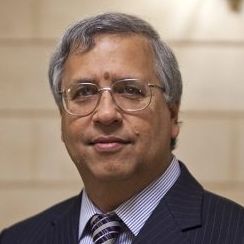
Professor Cyrus Cooper
Past-Director, MRC Lifecourse Epidemiology Centre
I am a clinically qualified Consultant Rheumatologist, as well as a Professor and Past-Director of the MRC Lifecourse Epidemiology Centre, University of Southampton. The Unit that I direct hosts the Southampton Women’s Survey, which is the major UK resource relating women’s body composition and lifestyle before conception to their environment during pregnancy and then studying the baby following its birth. Our particular interest lies in linking the mother’s nutrition before and during pregnancy to the fat, muscle and bone mass of the baby after it is born. The children have been followed up in infancy and childhood, with current evaluations ongoing at ages 11-13 years.
As Past-Director of the MRC Lifecourse Epidemiology Centre, I have overarching responsibility for the Southampton Women’s Survey, as well as our other cohort studies and trials. The Centre has a staff of around 80 people, working in diverse programmes which explore the epidemiology of musculoskeletal disease, diabetes and obesity. We write more than 200 research papers each year, and have several contacts with local and national media.
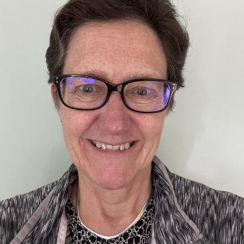
EMERITUS Professor Hazel Inskip
On a memorable day in July 1997, the director of our Centre came into my office and asked me if I would consider running a large survey of young women in Southampton. He presumably thought that I might manage to do it, as I had spent six years in The Gambia in West Africa working on a study of 124,000 children. There aren’t that many young women in Southampton!
The Survey then had a nine-month gestation during which we raised money, worked out how to do the study, designed the questionnaire, and recruited and trained a large team of staff. We started the Survey in April 1998 and are still going. I’m still running the Survey, with lots of help and support from many others. It’s a great project to be working on, but we owe much to the willingness of the women and children who take part and all the time and help they give us.
My time nowadays is taken up with trying to keep funds flowing to keep the Survey going, to get the data sorted out for analysis, to work out the results, and to try to get the papers published in the scientific press. We are continually planning further stages of the Survey. I am also Deputy Director of the MRC Lifecourse Epidemiology Centre so have various administrative duties associated with that, and I am also involved in a number of intervention studies that build on the findings of the SWS in which we aim to improve the health of the population. Our particular focus is on improving health and health behaviours in young people before they become parents and also during pregnancy.
I am a medical statistician by training, with a PhD in Epidemiology. Throughout my career I have worked on a variety of issues including the effects of radiation, hepatitis B and liver cancer, asthma in children, and backpain in nurses. Many of the studies have been very large, but the SWS has resulted in the most data to sort out and analyse.
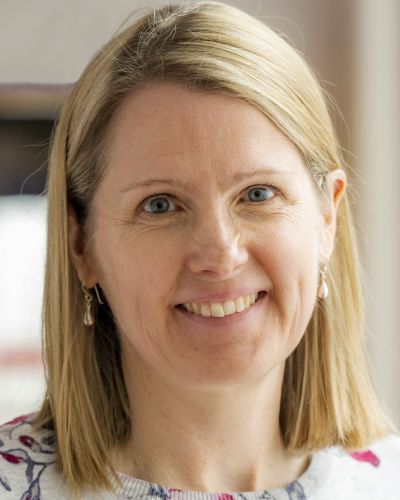
Sarah Crozier
Associate Professor of Statistical Epidemiology
I work on the Southampton Women’s Survey as a statistician. The study has been a huge part of my career as I have been involved for nearly 25 years. With so much information collected, it is an enormous task to make it ready and available for analysis. I therefore work closely with data managers to ensure this important scientific resource can be used in the most efficient way possible. I also conduct many of the analyses that are required, in areas such as food and nutrition, maternal behaviours, bone health and growth. I used the Southampton Women’s Survey data in my PhD, where I applied statistical techniques to characterise dietary patterns amongst the women in the pre-pregnancy cohort. Since I was aged 20-34 and living in Southampton at the time of the pre-pregnancy phase of the study, I was recruited to be a participant and am therefore often in the unusual position of analysing data to which I have contributed!

TINA Horsfall
Research Data Co-Ordinator and Communications Officer
I have been with the Southampton Women’s survey since its birth in February 1998, more than twenty years! My role within the SWS team is to co-ordinate all the data that has been collected from the study participants and then, in collaboration with the Programmers, all the data is cleaned and checked for viability. The data is then passed on to Statisticians and Senior Scientists for analysis in order to produce papers and abstracts for publication.
Wearing another hat, I co-ordinate public engagement activities on behalf of the MRC LEC at The University of Southampton’s National Science and Engineering week and the Southampton General’s Hospital Open day based in LifeLab. At these events we often get SWS participants visiting our showcase activities, it’s great to see familiar faces, so please keep coming along and supporting us.
I think the research that is being done on the Southampton Women’s Survey is vital for the health and wellbeing of future generations, and I feel privileged to be a part of this survey team.

Julia Hammond
Senior Research Nurse
I qualified as a Registered General Nurse in 1984 and as a Midwife in1987. Through my work as a midwife and brief experience of working in research in another field, I became interested in the role research had to play. At that time there were few opportunities for nurses to work in research so when I saw an advert in 1991 for a research nurse/midwife to work at the MRC on a study of nutrition in pregnancy among Southampton mothers it seemed just the job I was looking for. I worked principally on two studies in this area. In 1997 I was asked if I wanted to be involved with a new large study – the Southampton Women’s Survey.
The prospect of working on such a large important and unique study was really exciting. Initially I was involved in helping to set up the study. We had to look into the basics like where we could house such a large team of nurses and other study staff. At our maximum we had 38 nurses at one time carrying out the initial home visits.
As well as working with such a good team of loyal staff, what has kept me motivated over the years has been the enjoyment of meeting the women and their families, without whose dedication and support it would not have been possible to carry out what seemed like the impossible!
Participants
Sydney Anstee
Participant
I took part in the study a few years ago – it’s amazing to realise that all the time we’re eating we don’t even think about why we choose those foods and what effect they might have.
I might be able to blame my mum for my big bum, but it might be more healthy having the fat there than around my waist. What my mum ate before she became pregnant may have influenced this, and if so, how does it influence my health?
Kirsteen Mackinnon
Participant
As a woman I believe I have a moral obligation to take part in this type of research in order to help future generations, and it’s a better research method than using animals.
I really loved feeling a part of a community of women and like to think that women all over the world might benefit from the findings of the project.
rosalind
Participant
I try to eat healthily but the fact that I work full-time means that its hard to have regular balanced meals although Im aware of what is a good healthy diet. I think its so distant – such a long way off – to think that something you’re doing now could affect someone in many years to come, when you might not even be around, is quite a hard thing to grasp.
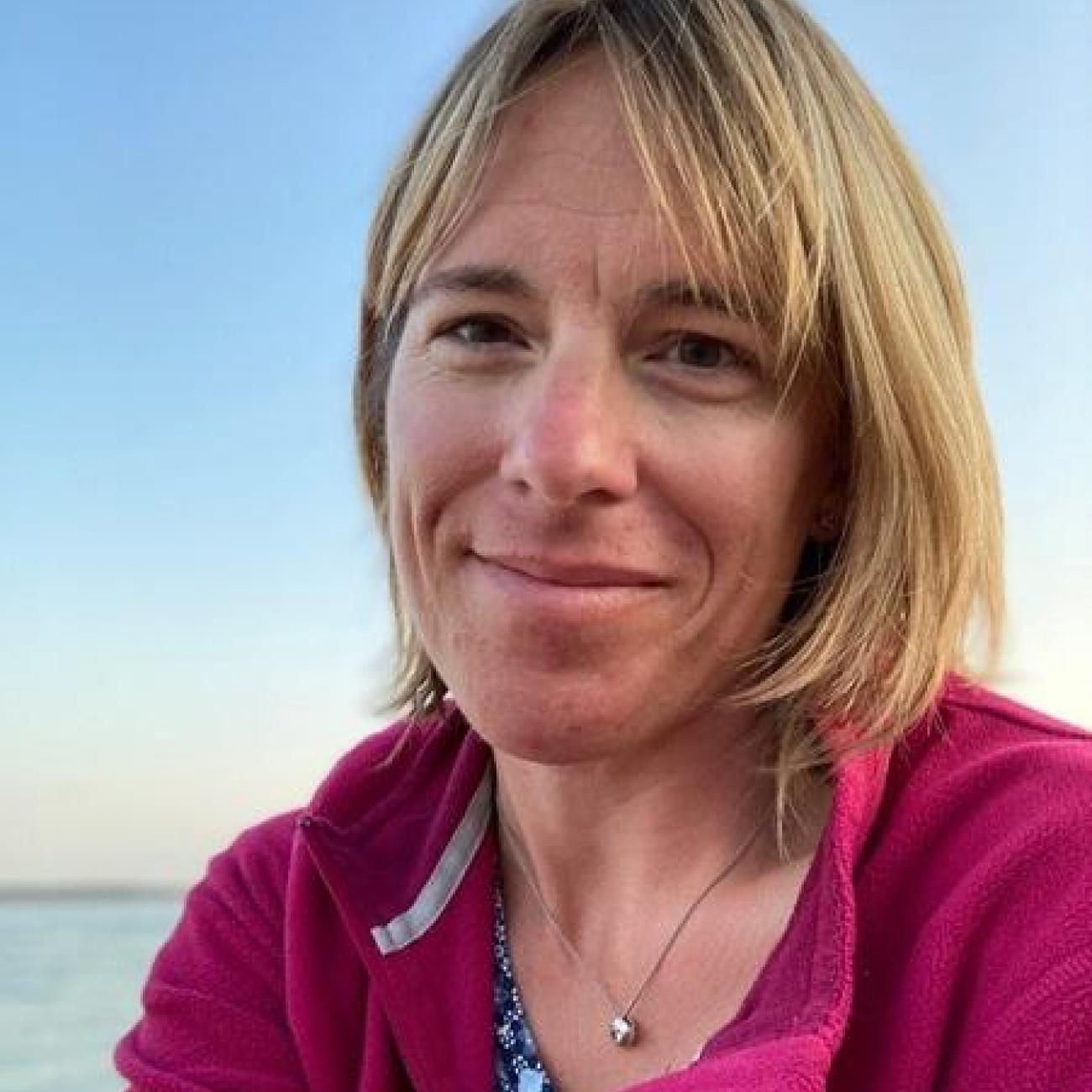
DR holly Syddall
Senior Enterprise Fellow
I can hardly even remember taking part in the initial SWS questionnaire when I was a young married woman who worked full-time and had no children. Since then I have had two sons, the oldest of whom is an ‘SWS baby’. He’s not much of a baby anymore mind you, he’s just started secondary school! I remember that it was great to have his ultrasound scans carried out by the SWS team during my pregnancy and I remember the SWS nurse coming to visit us on the ward at Princess Anne hospital to measure him on the first day of his life! Since then we’ve taken part in several SWS follow-up studies, most recently the ten-year visit when he was fascinated to see his skeleton on the DXA scan print out! We are both looking forward to hearing from SWS for future follow-ups. It’s great to have had detailed information collected about my son throughout his life and to know that it is part of a huge dataset that will help scientists to discover which lifestyles are best for children’s development and their health right through their lives!
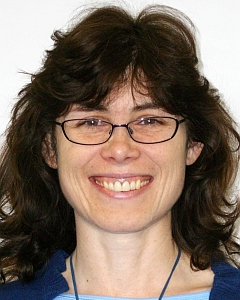
Cathy linaker
Participant
I can hardly even remember taking part in the initial SWS questionnaire when I was a young married woman who worked full-time and had no children. Since then I have had two sons, the oldest of whom is an ‘SWS baby’. He’s not much of a baby anymore mind you, he’s just started secondary school! I remember that it was great to have his ultrasound scans carried out by the SWS team during my pregnancy and I remember the SWS nurse coming to visit us on the ward at Princess Anne hospital to measure him on the first day of his life! Since then we’ve taken part in several SWS follow-up studies, most recently the ten-year visit when he was fascinated to see his skeleton on the DXA scan print out! We are both looking forward to hearing from SWS for future follow-ups. It’s great to have had detailed information collected about my son throughout his life and to know that it is part of a huge dataset that will help scientists to discover which lifestyles are best for children’s development and their health right through their lives!
